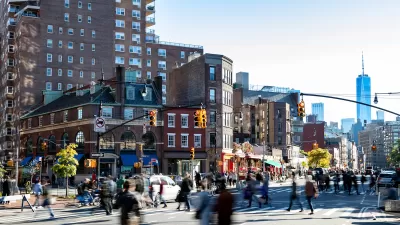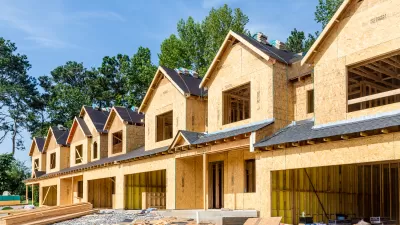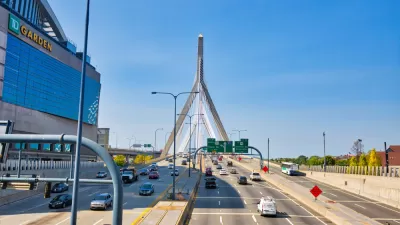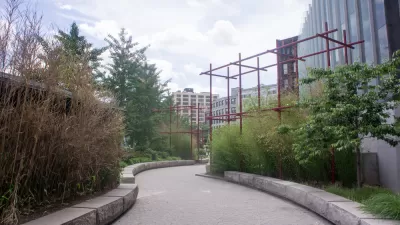Transportation policy expert, Ken Orski, takes a different perspective in his column, "Living in Denial". Rather placing the blame on the American public and lawmakers denying the infrastructure crisis, he applies it to the transportation community.
Despite two Congressional commissions and two former DOT Secretaries warning of the transportation funding crisis and its implications on Oct. 4, on top of a 2007 interstate highway bridge collapse killing 13 people, Ken Orski notes that Americans are largely unaware and/or uninterested in addressing America's deteriorating transportation infrastructure.
"It may be impolitic to suggest it, but dire warnings about the sorry state of the nation's infrastructure seem to come largely from organized interests - stakeholders and advocacy groups... But rightly or wrongly, congressional lawmakers often discount cries about "crumbling infrastructure" as self-serving demands for more government money...
Lawmakers witness New Jersey voters strongly approving Governor Chris Christie's decision to cancel work on the long-planned rail tunnel under the Hudson River because, says the Governor, "the state simply doesn't have the money" to pay for overruns in the potential $9-14 billion project. "
"As one of our colleagues, a sincere and lifelong transportation advocate, put it, "the transportation community is mostly talking to itself and living in denial about the changing political mood." That mood-in the nation at large as well as in the next Congress- is unmistakably becoming more conservative and skeptical of big government."
Thanks to Ken Orski
FULL STORY: Living in Denial

Pennsylvania Mall Conversion Bill Passes House
If passed, the bill would promote the adaptive reuse of defunct commercial buildings.

Planning for Accessibility: Proximity is More Important than Mobility
Accessibility-based planning minimizes the distance that people must travel to reach desired services and activities. Measured this way, increased density can provide more total benefits than increased speeds.

Fair Housing Cannot Take a Back Seat to ‘Build, Baby, Build’
If we overlook fair housing principles in the plan to build US housing back better, we risk ending up right back where we started.

LA Metro Board Approves New 710 Freeway Plan
The newest plan for the 710 corridor claims it will not displace any residents.

Austin’s Proposed EV Charging Rules Regulate Station Locations, Size
City planners say the new rules would ensure an efficient distribution of charging infrastructure across the city and prevent an overconcentration in residential areas.

Making California State Parks More Climate-Resilient
A recently released report offers recommendations for keeping state parks healthy and robust, including acquiring additional land for conservation and recreation.
City of Costa Mesa
Licking County
Barrett Planning Group LLC
HUD's Office of Policy Development and Research
Mpact Transit + Community
HUD's Office of Policy Development and Research
Tufts University, Department of Urban and Environmental Policy & Planning
City of Universal City TX
ULI Northwest Arkansas
Urban Design for Planners 1: Software Tools
This six-course series explores essential urban design concepts using open source software and equips planners with the tools they need to participate fully in the urban design process.
Planning for Universal Design
Learn the tools for implementing Universal Design in planning regulations.


























